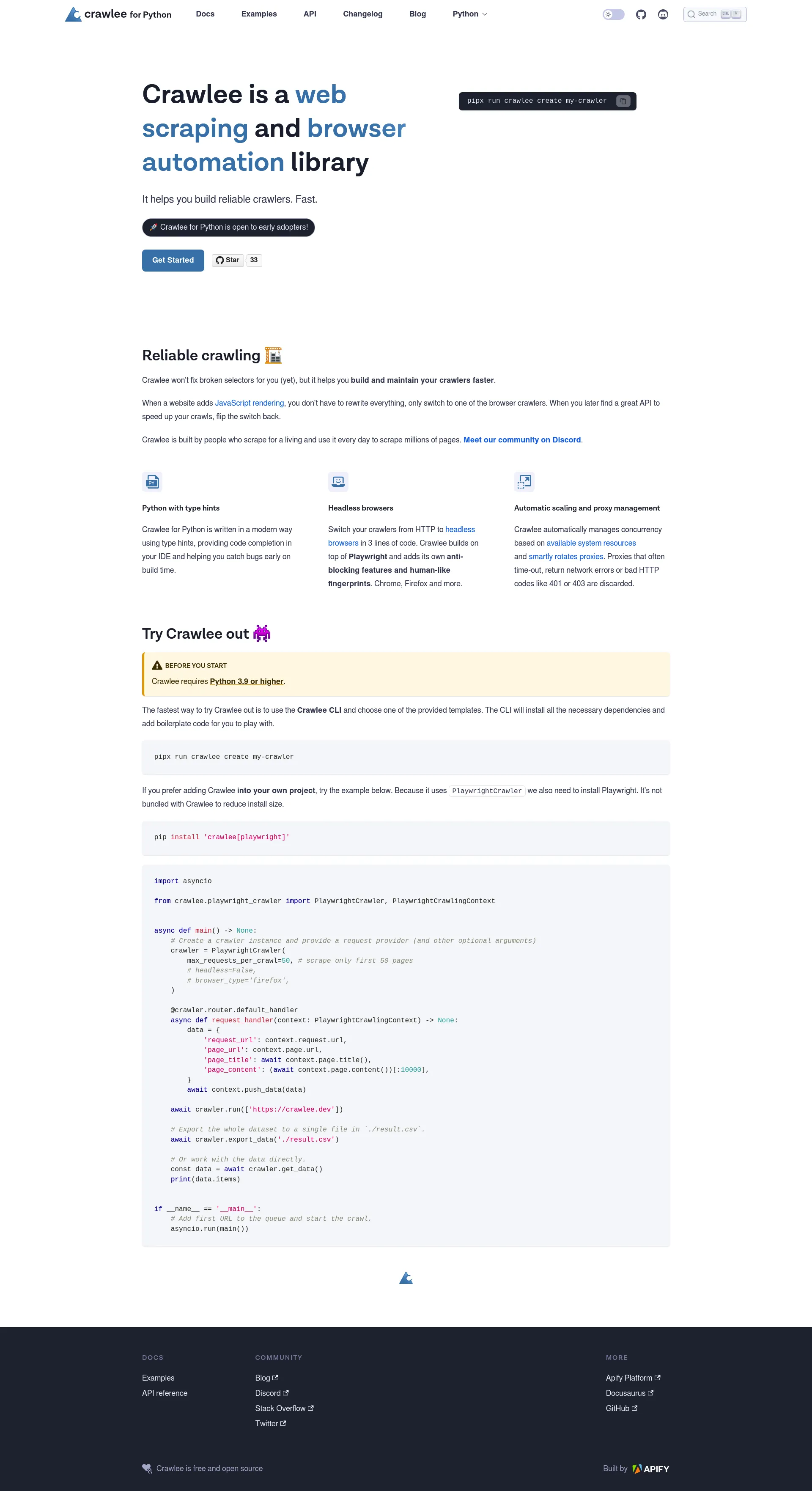
We are launching Crawlee for Python, an open-source library for web scraping and browser automation. Quickly scrape data, store it, and avoid getting blocked with auto-generated human-like fingerprints, headless browsers, and smart proxy rotation.

Crawlee is a robust web scraping and browser automation library for Python. It enables developers to build reliable crawlers quickly and efficiently.
Crawlee is developed by experienced web scraping professionals who use it daily for large-scale data extraction projects.
pipx run crawlee create my-crawler
pip install 'crawlee[playwright]'
playwright install
import asyncio
from crawlee.playwright_crawler import PlaywrightCrawler, PlaywrightCrawlingContext
async def main():
crawler = PlaywrightCrawler(
max_requests_per_crawl=5,
headless=False,
browser_type='firefox',
)
@crawler.router.default_handler
async def request_handler(context: PlaywrightCrawlingContext) -> None:
await context.enqueue_links()
data = {
'url': context.request.url,
'title': await context.page.title(),
'content': (await context.page.content())[:100],
}
await context.push_data(data)
await crawler.run(['https://crawlee.dev'])
await crawler.export_data('results.json')
if __name__ == '__main__':
asyncio.run(main())
Kod yazmadan herhangi bir web sitesinden veri çıkarın.
Herkes İçin Kolay Web Kazıma.
Var olmayan yerlerde API oluşturun. Kimono ile hızlıca...

Saldor, büyük dil modelleri için en iyi web verilerini çıkarır.
Web sitelerini anında özelleştirilebilir API'lere dönüştürün.

Acısız Veri Çıkarma ve Web Otomasyonu

Web verilerini sorunsuz bir şekilde tarayın, ayrıştırın ve ölçeklendirin
Engellenmeden web kazıma için en basit API.

Yapay zekâ destekli tarayıcı otomasyonları.

Web scraping'i kolaylaştırın

1:1 sohbetler için aynı fikirde olan profesyonellerle eşleşin

Slack Kaosundan Dakikalar İçinde Berraklığa Geçin

30 dakikadan kısa sürede binlerce iniş sayfasını kişiselleştirin

Doğruluk ve hızla belge ayrıştırma için ilk LLM

SaaS profesyonelleri için AI asistanları

Canlı çeviriyle AI destekli telefon görüşmesi uygulaması

Keyifli, AI destekli etkileşimli demolar—artık oturum açma gerekmiyor

AI Hareketli Grafikler Yardımcı Pilotu

Stres ve endişeden kurtulmak için konfeti patlatın, %100 yapay zeka içermez

SaaS İçin Düzgün Ödemeler